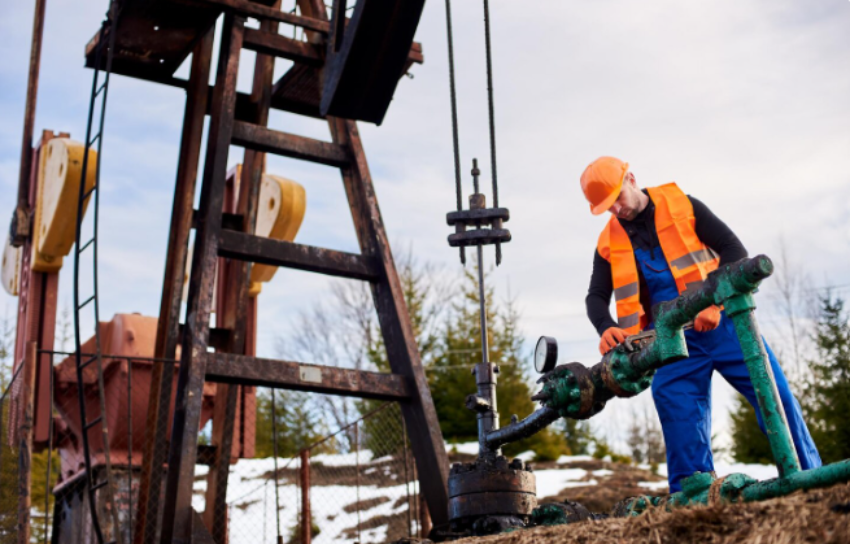When we think of heating in the United Kingdom, the conversation often gravitates towards natural gas, electricity, or renewable energy sources like heat pumps and solar panels. However, in rural areas across the UK, heating oil remains a vital and reliable energy source for thousands of households. Despite ongoing government initiatives encouraging greener solutions, heating oil continues to play a crucial role in meeting the energy needs of people who live in the countryside.
This article explores why heating oil remains so significant in rural UK homes, how it compares with alternatives, and what the future might hold for this long-standing energy source.
The Unique Energy Landscape of Rural UK
Unlike towns and cities, rural areas often lack access to the mains gas grid. In fact, around 1.5 million households in the UK are considered “off-grid,” and the majority of these rely on oil-fired boilers for heating and hot water. Many of these homes are older properties with thicker walls, lower insulation standards, and traditional designs that aren’t easily compatible with modern low-carbon heating technologies.
For these households, switching to alternatives like heat pumps or biomass boilers isn’t always practical or affordable. As a result, heating oil has maintained its position as the go-to energy solution for much of rural Britain.
The Reliability Factor
One of the main reasons rural households continue to depend on heating oil is reliability. Unlike electricity, which can be vulnerable to outages during storms or infrastructure issues, heating oil is stored on-site in a tank. This independence from the national grid provides peace of mind, especially in more remote regions where power cuts can last hours or even days.
With heating oil, households can control their supply by ordering in advance, monitoring consumption, and ensuring they have reserves ready for the coldest winter nights. This level of self-sufficiency appeals strongly to rural homeowners who value independence and security.
Cost Control and Flexibility
While heating oil prices can fluctuate with global markets, households benefit from flexibility in purchasing. Homeowners can choose when to order, often timing deliveries during periods of lower prices. Many suppliers also offer budget payment plans, making it easier for families to spread the cost throughout the year.
Unlike electricity bills, which come monthly regardless of usage, oil users can plan and manage their heating budget more actively. This control resonates with households who are careful about managing living costs, particularly during times of economic uncertainty.
Compatibility with Existing Infrastructure
A significant portion of rural UK housing stock still relies on oil-fired central heating systems that have been in place for decades. For these homes, upgrading to a completely new heating system often requires expensive retrofitting, including changes to radiators, insulation upgrades, and sometimes structural modifications.
In comparison, replacing an old oil boiler with a modern, more efficient model is a far more affordable and straightforward option. Many rural homeowners therefore stick with heating oil because it allows them to maintain warmth and comfort without the disruptive expense of overhauling their entire system.
Heating Oil and Energy Efficiency
Modern condensing oil boilers have transformed the efficiency of heating oil. New systems can achieve efficiencies of over 90%, reducing both fuel consumption and emissions compared to older models. For homeowners concerned about environmental impact, upgrading their boiler and using oil responsibly can strike a balance between practicality and sustainability.
Additionally, regular servicing and proper tank maintenance further improve efficiency, ensuring homes get the most value from every litre of oil delivered.
Environmental Concerns and the Push Towards Renewables
Of course, no discussion about heating oil can ignore the environmental debate. Heating oil is a fossil fuel, and burning it contributes to carbon emissions. The UK government has made it clear that it wants to reduce reliance on oil boilers in the long term, encouraging a transition to low-carbon alternatives.
That said, the path to greener heating isn’t straightforward for rural areas. Heat pumps, while promoted heavily, require homes to be well-insulated and often need underfloor heating or oversized radiators. Many older rural properties simply aren’t suitable without major renovation costs. Biomass boilers are another option, but sourcing, storing, and handling fuel like wood pellets or logs isn’t practical for every household.
For many rural residents, heating oil remains the only feasible solution while renewable technology becomes more adaptable and affordable.
The Role of Biofuels in the Future of Heating Oil
One of the most exciting developments in the industry is the rise of biofuels and low-carbon liquid fuels. Trials across the UK have shown that traditional oil boilers can often be adapted to run on Hydrotreated Vegetable Oil (HVO), which can reduce carbon emissions by as much as 88% compared to standard heating oil.
This innovation could allow rural households to continue using their existing systems while significantly reducing environmental impact. If government policy supports this transition, biofuels could bridge the gap between traditional heating oil and a fully renewable energy future.
Security of Supply in a Changing World
Another reason heating oil remains relevant is energy security. With geopolitical tensions, fluctuating natural gas supplies, and rising electricity demand, having an independent, on-site fuel source remains attractive. For rural homeowners, the ability to store several months’ worth of fuel reduces reliance on external infrastructure and gives greater resilience during uncertain times.
This localised security is particularly important during cold winters, when demand for heating peaks and supply chains for gas and electricity can come under pressure.
Heating Oil and Community Networks
Interestingly, heating oil has fostered strong community networks in rural areas. Many villages and communities organise oil-buying groups, where households pool orders to negotiate lower prices from suppliers. These cooperative schemes not only save money but also strengthen the sense of community in rural life.
This community-driven approach to energy management highlights how heating oil is more than just a fuel—it’s also part of the rural way of life in Britain.
Government Regulations and Homeowner Concerns
There is no denying that government policies are gradually moving against heating oil. Proposals to ban the installation of new oil boilers in off-grid homes by the mid-2030s highlight the pressure on rural homeowners to consider alternatives.
However, policy must balance ambition with practicality. For many families, the immediate cost of switching to heat pumps or biomass systems is simply out of reach. Until financial support schemes are expanded and technologies become more affordable, heating oil will remain the cornerstone of rural heating solutions.
Why Heating Oil Still Matters Today
To summarise, heating oil continues to hold its place in rural UK homes for several key reasons:
-
Large numbers of homes remain off-grid and unsuitable for gas or electric alternatives.
-
Oil provides independence and security, with on-site storage protecting against outages.
-
Households enjoy purchasing flexibility and budget control.
-
Upgrading existing oil systems is more cost-effective than complete retrofits.
-
New boiler technologies and biofuel alternatives are making oil heating cleaner and more efficient.
Looking Ahead: A Balanced Approach
The future of rural heating in the UK will likely be a hybrid landscape, where heating oil remains relevant alongside growing renewable adoption. Biofuels, efficiency improvements, and better insulation technologies will ensure that heating oil evolves rather than disappears overnight.
For now, heating oil remains an indispensable energy source for rural Britain, ensuring warmth, comfort, and reliability in homes where other options are simply not yet viable. While the transition to greener solutions is important, it must be handled with fairness and practicality—acknowledging the vital role heating oil continues to play in everyday rural life.







0 Comments